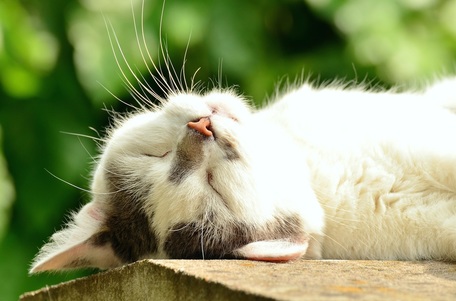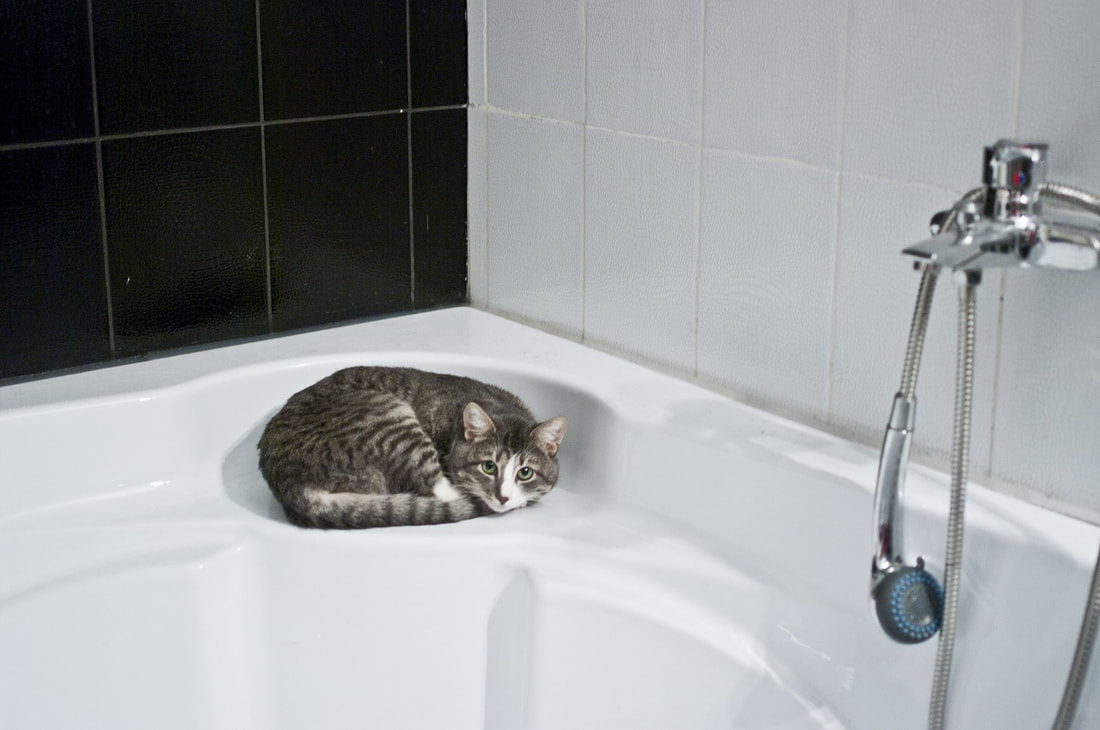1. Upper Respiratory Infections
Think about this cat illness like a human having a cold virus. You can recognize Upper Respiratory Infections in you cat by looking out for some of the most common signs;
- fever
- red eyes
- sneezing
- appetite loss
- runny nose
- watery eyes
- decrease in activity.
2. Feline Leukemia Virus
The Feline Leukemia Virus is another dangerous common cat disease. This one is really like a human being infected with HIV. The Leukemia Virus acts against the cats immune system and breaks down most of its natural bacterial fighting properties making the cat very susceptible to the build up of cancerous cells and other diseases. This disease is dangerous and it is not quite easily diagnosed by the cat owner. But you can look out for the following Symptoms of Feline Leukemia Virus:
- Pale gums.
- Yellow color in the mouth and whites of eyes.
- Enlarged lymph nodes.
- Bladder, skin, or upper respiratory infections.
- Weight loss and/or loss of appetite.
- Poor coat condition.
- Progressive weakness and lethargy.
- Fever.
3. Urinary Tract Infections
Don't take this infection for granted. If your cat urinary tract becomes infected and without proper vet treatment, your feline could die. Some of the symptoms of cat urinary tract infection includes:
- Straining to Urinate. Feline idiopathic cystitis, also known as bladder inflammation, is the most common cause of lower urinary tract disease in cats.
- Frequent Attempts to Urinate.
- Painful Urination.
- Bloody Urine.
- Urinating Outside the Litter Box.
- Discolored Urine
- crystals or stones in the bladder,
- bladder infections,
- urethral obstruction,
- inflammation in the urinary bladder (sometimes referred to as interstitial or idiopathic cystitis),
Treatment
Cats diagnosed with this disease early are given antibiotics to fight the infection. Owners should also ensure that the cat is properly hydrated.
4. Hyperthyroidism
This is not really considered an illness, but it can have negative effects on your cat.
Cats who are over the age of 8 often succumb to hyperthyroidism. Hyperthyroidism (overactive thyroid) is a condition in which your thyroid gland produces too much of the hormone thyroxine. It may accelerate the felines body's metabolism significantly, causing sudden weight loss, a rapid or irregular heartbeat, and nervousness or irritability.
Signs of hyperthyroidism can include:
- weight loss.
- increased appetite.
- increased activity and restlessness.
- aggressive or cranky behavior.
- a poor hair coat.
- a fast heart rate.
- increased water drinking.
- increased urination.
Treatment
- Vets can uses use anti-thyroid medications and radioactive iodine to slow the production of thyroid hormones.
- Surgical removal of the thyroid.
5. Tapeworms
Your cat maybe host to a foreign entity that i actually sucking the life force from your cat. The tapeworm reside in the small intestine and feeds and grows as long as 2 feet.
Symptoms of Tapeworms In Cats
- Weight Loss
- Vomiting
- Seeing small white worms in your cats feces.
Treatment options include injection, oral, or topical medication. But because cats almost always get tapeworms as a result of swallowing a flea, be sure to handle any flea problems your cat has before tackling tapeworms.
These are just a few of the common diseases that can affect cats. If you notice your cat isn't acting like her normal self, talk to your veterinarian. Often doing a little bit now can keep a simple illness from becoming something dangerous or deadly.




 RSS Feed
RSS Feed

